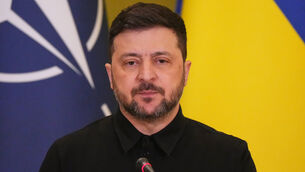Crisis talks in Italy after Prodi resignation
Prodi resigned on Wednesday evening after losing a key parliamentary vote on foreign policy, including plans to keep Italian troops in Afghanistan. He is staying on in a caretaker role.
The talks at the presidential palace were aimed at working out which political leaders, if any, might be able to muster enough support for a parliamentary majority and thus avoid a new election.














